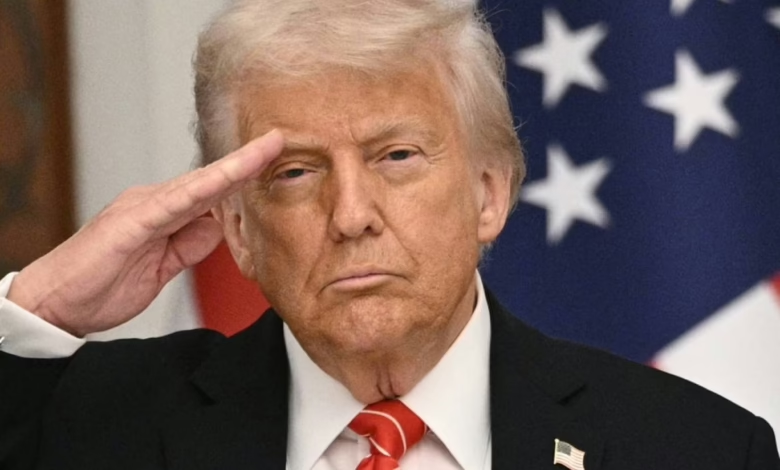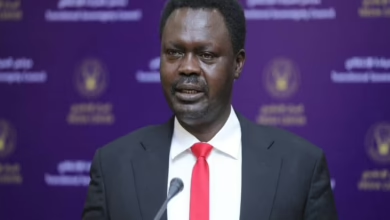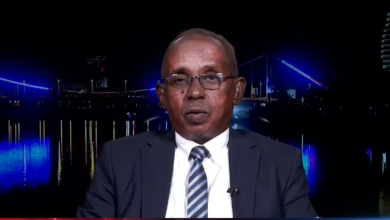
Sudan Live News – Follow-ups
Israel’s right-wing government has maintained diplomatic silence this week as U.S. President Donald Trump unleashed a storm of statements that shook Israeli assumptions about their country’s standing with its most crucial ally.
Trump’s decision to bypass Israel during his current Middle East tour is seen as a sign of his administration’s increasing focus on trade deals with Gulf states—including Qatar, which Israeli officials have repeatedly accused of supporting Hamas.
Even before the visit began, Israel was uneasy due to U.S. talks with its archenemy Iran and Trump’s decision to halt airstrikes against the Houthis in Yemen—despite the Iran-aligned group’s continued missile attacks on Israel.
Israeli officials watched from the sidelines as the U.S. negotiated a deal with Hamas to secure the release of Edan Alexander, the last remaining American hostage in Gaza.
Since then, they have had to listen as Trump announced the lifting of sanctions on Syria and called for normalization with the new government in Damascus—a regime Israel considers extremist and barely concealing its true nature.
Even as Trump spoke in Riyadh on Tuesday, taking credit for the ceasefire with the Houthis, Israeli media noted that sirens blared across parts of Israel, including Jerusalem and Tel Aviv, as a missile from Yemen headed their way.
Trump himself ignored any suggestion of a rift with Israel, telling reporters in the Gulf that his visit would ultimately benefit a country he still considers one of his strongest supporters.
“This is good for Israel, for me to have this kind of relationship with these countries—all of them, the Middle Eastern states,” Trump said.
Israeli Prime Minister Benjamin Netanyahu has so far refrained from commenting, except to thank Trump for helping secure Alexander’s release.
But he faces a widespread perception that Israel is being left behind, especially as it already faces international pressure over the Gaza war, which has hindered its hopes for normalization with Saudi Arabia.
Yoav Limor, a commentator for the right-leaning Israel Hayom, wrote: “The Middle East is being reshaped before our eyes through a series of agreements and meetings, while Israel stands (at best) as a spectator.”
Netanyahu has made no secret of his preference for Trump over former U.S. President Joe Biden, who halted some heavy ammunition shipments and imposed sanctions on violent Israeli settler groups.
Yet Netanyahu is under pressure from far-right religious nationalists in his government, who insist on continuing the Gaza war until Hamas is decisively defeated, and from other Israelis growing weary of a conflict now in its 18th month. So far, Netanyahu has sided with the hardliners.
Jonathan Panikoff, a former deputy U.S. intelligence official for Middle East affairs, said recent events suggest a “clear divergence in priorities” and that Israel may no longer enjoy the special treatment it once received from U.S. administrations.
Panikoff, now with the Atlantic Council in Washington, added: “Trump is clearly determined to move forward with a priority list focused on deals, trade, and investment. If traditional political or security issues—which the U.S. and Israel have long closely coordinated on—don’t align well with Trump’s priorities, he’ll move forward anyway.”
Trump administration officials insist U.S.-Israel relations remain strong, but they have privately expressed frustration with Netanyahu as Trump seeks to fulfill his campaign promise of quickly ending wars in Gaza and Ukraine.
U.S. officials want Netanyahu to work harder toward a ceasefire and a hostage-release deal with Hamas, while offering little support for any Israeli strike on Iran’s nuclear facilities amid Washington’s push for a diplomatic solution.
White House National Security Council spokesman James Hewitt said the U.S. continues to work with Israel to free the remaining 58 hostages in Gaza and enhance regional security, adding: “Israel will never have a better friend in its history than President Trump.”
Meanwhile, Israeli hardliners have largely stayed silent after once celebrating Trump’s proposal to depopulate Gaza of Palestinians and turn the strip into a beach resort. Israeli officials have been careful to avoid criticizing the U.S. administration.
A Foreign Ministry spokesman said this week, when asked about concerns over Israel’s marginalization in Alexander’s release: “The U.S. is a sovereign state.” He added that “friendly dialogue” between Israel and the U.S. “will be conducted directly, not through the media.”
An Israeli team was dispatched to Doha to participate in ceasefire talks coordinated by Trump’s special envoy, Steve Witkoff. Yet Israeli forces intensified strikes on Gaza, killing dozens of Palestinians on Wednesday.
Netanyahu reiterated that Israel—which earlier this month announced plans to escalate its Gaza campaign—remains committed to its war objectives, including dismantling Hamas’ military and governance capabilities. On Wednesday, he reaffirmed: “Israel will not stop and will not surrender.”






